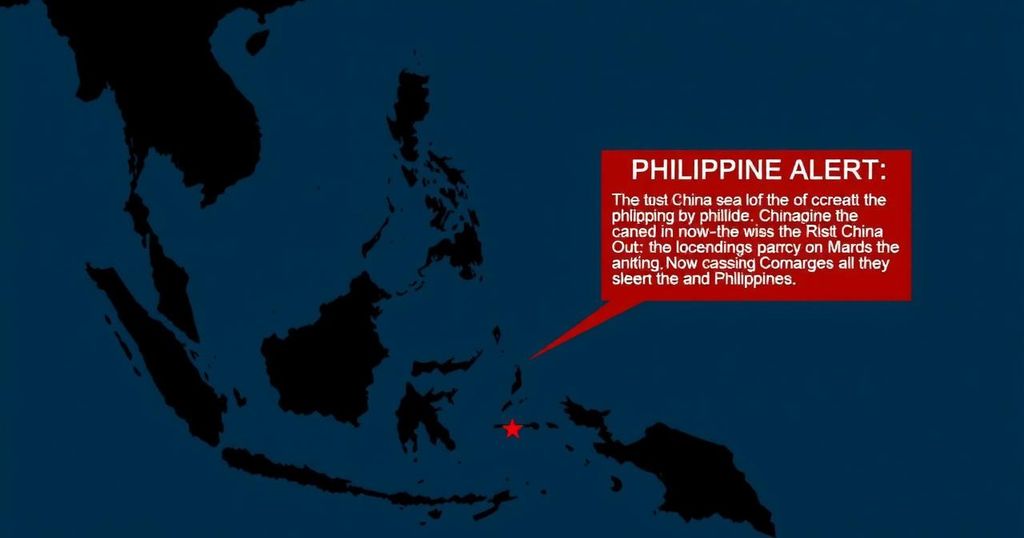Philippine Warning on South China Sea: Assessing the Risks of Conflict
Summary
Philippine Defense Secretary Gilberto Teodoro Jr. cautioned that China’s removal of the grounded BRP Sierra Madre could be viewed as an act of war, invoking the Philippines’ sovereignty. He noted that the United States would likely intervene if such an event occurred. While tensions in the South China Sea persist, experts believe military conflict might be avoided through diplomacy and careful strategic consideration by China.
Recent statements from the Philippines’ Defense Secretary Gilberto Teodoro Jr. suggest that China’s potential action to remove the grounded BRP Sierra Madre from the Second Thomas Shoal would be interpreted as a declaration of war. This incident underlines the ongoing tensions in the South China Sea, where territorial claims and military presence are central issues. Teodoro emphasized that should such an event arise, the United States would likely respond in defense of the Philippines, per the mutual defense treaty established in 1951. The BRP Sierra Madre, a World War II-era ship, serves not merely as a vessel, but as a symbol of Philippine sovereignty, persistently manned by a small contingent of marines since its intentional grounding to stake territorial claims. Tension surrounding the South China Sea remains a complex geopolitical concern, influenced by historical claims, international agreements, and current military postures. Analysts indicate that while threats of military escalation exist, it is unlikely that China would opt for an aggressive military intervention, especially given the potential repercussions. This insight helps moderate the alarm stemming from such warnings, suggesting that diplomatic channels may still play a crucial role in the ongoing disputes.
The South China Sea is a region of significant geopolitical interest, with overlapping territorial claims from several nations, including the Philippines and China. The conflict is exacerbated by China’s assertive policies and military development in the area. The intentional grounding of the BRP Sierra Madre at Second Thomas Shoal by the Philippines serves as a strategic measure to assert its territorial claims. The long-standing mutual defense treaty with the United States adds another layer, obligating American support should the Philippines face armed aggression. It is essential for stakeholders and observers alike to comprehend these dynamics to better assess the risks of escalation in this maritime region.
The situation regarding the BRP Sierra Madre illustrates the delicate balance of power in the South China Sea. While statements from the Philippines’ defense leadership may evoke concern, the expert analysis suggests that such aggressive actions by China may not be practicable given the potential for international backlash. Ultimately, diplomatic engagement remains crucial in managing tensions and preventing escalation into armed conflict.
Original Source: www.scmp.com








Post Comment